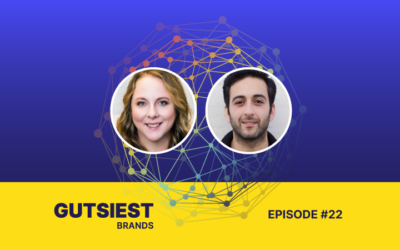How Market Research Applies to Companies of All Sizes: Denver Startup Week Recap
This week was Denver Startup Week, an annual summit where local entrepreneurial leaders across various industries share their diverse expertise in the hopes of inspiring and preparing the next generation of innovators. There were plenty of amazing panels, but our favorite involved our CEO Matt Warta presenting alongside SurveyGizmo’s Christian Vanek and Beneson Strategy Group’s Carl Rossow—moderated by one of our research managers, Laura Jett. The topic was, unsurprisingly, market research: particularly its relevance and importance to almost any business endeavor. The discussion was lively and lengthy, and we wanted to share a few choice takeaways.
Of Course You Should Conduct Research, but Take the Time to Evaluate Your Options
As an experienced venture capitalist, Matt Warta has seen the impact of market research on budding businesses firsthand, and would never consider launching another one without it. He emphasized the importance of partnering with a capable researcher: though online DIY options make research an affordable possibility for all, you’ll need a professional to guide the scope and execution of the study, as well as interpret your results as actionable insights. Christian Vanek agreed that you can spend the money and get more certainty in return, but also suggested that you can spend a little more time and educate yourself on research best practices, execution, and interpretation. He advised that while the DIY route is indeed affordable, your results will be all but useless if you don’t take the time to set appropriate parameters or find your target audience. Carl Rossow warned that just because you have the tools to perform research doesn’t mean you know how to perform research. Regardless of which approach you take, all agreed that consumer insights are an absolute must, and you must find a way to ensure you are asking the right people the right questions in the right format.
Your Research Needs Will Change as Your Business Grows
Rossow pointed out that no matter how small or large your company may be, the core processes of market research do not change. What does change? The questions you ask, the audience you target, and the competitors you challenge. Whereas your initial research questions were concerned with defining the market and establishing your brand, a growing business needs to understand how that market landscape has changed in terms of how your brand has grown. Rossow added that any chance to connect with your consumers is also a chance to compete with market rivals. Consumers are inundated with choice, and as your business ups the ante, research should be used to gain further market intelligence and leveraged into effective messaging that works to narrow that choice.
Interpret Big Data Through Qualitative Insights
One of the most engaging questions of the panel centered on how to sift through big data. Warta explained that in order to glean anything meaningful from a data dump, you have to understand the context of the problem you’re trying to solve. Rossow explained this context as “the architecture of opinions”: the values and attitudes that drive your consumers’ behavior. The idea behind big data is that past behavior is the best indicator of future behavior. But the reality of choice challenges that notion, and all panelists found that understanding the values people apply when deciding what to buy made their interpretation of big data far more predictive and meaningful. Conducting qualitative research that investigates and builds behavioral, attitudinal, and value models for your target audience will make big data far more insightful.
The session closed with some advice from Vanek: conduct market research as soon as you can, don’t get distracted from the focus of your study, and build customer feedback into your company’s decision-making process.
Even large companies like Google with access to tons of data heed this advice, and still do research with new products. For an example of how one product marketing team at Google leverages iterative market research to incorporate user feedback into product development early and often, check out the case study below.
Written By

Amelia Schrader
Sr. Demand Generation Manager
Want to stay up to date latest GutCheck blog posts?
Follow us on
Check Out Our Most Recent Blog Posts
When Vocation and Avocation Collide
At GutCheck, we have four brand pillars upon which we build our business. One of those is to 'lead...
Reflections on Season 1 of Gutsiest Brands
Understanding people is at the heart of market research. Sure, companies want to know what ideas...
Permission to Evolve with Miguel Garcia Castillo
(highlights from Episode #22 of the Gutsiest Brands podcast) Check out the latest lessons from our...
1-877-990-8111
[email protected]
© 2023 GutCheck is a registered trademark of Brainyak, Inc. All rights reserved.
© 2020 GutCheck is a registered trademark of Brainyak, Inc. All rights reserved.



